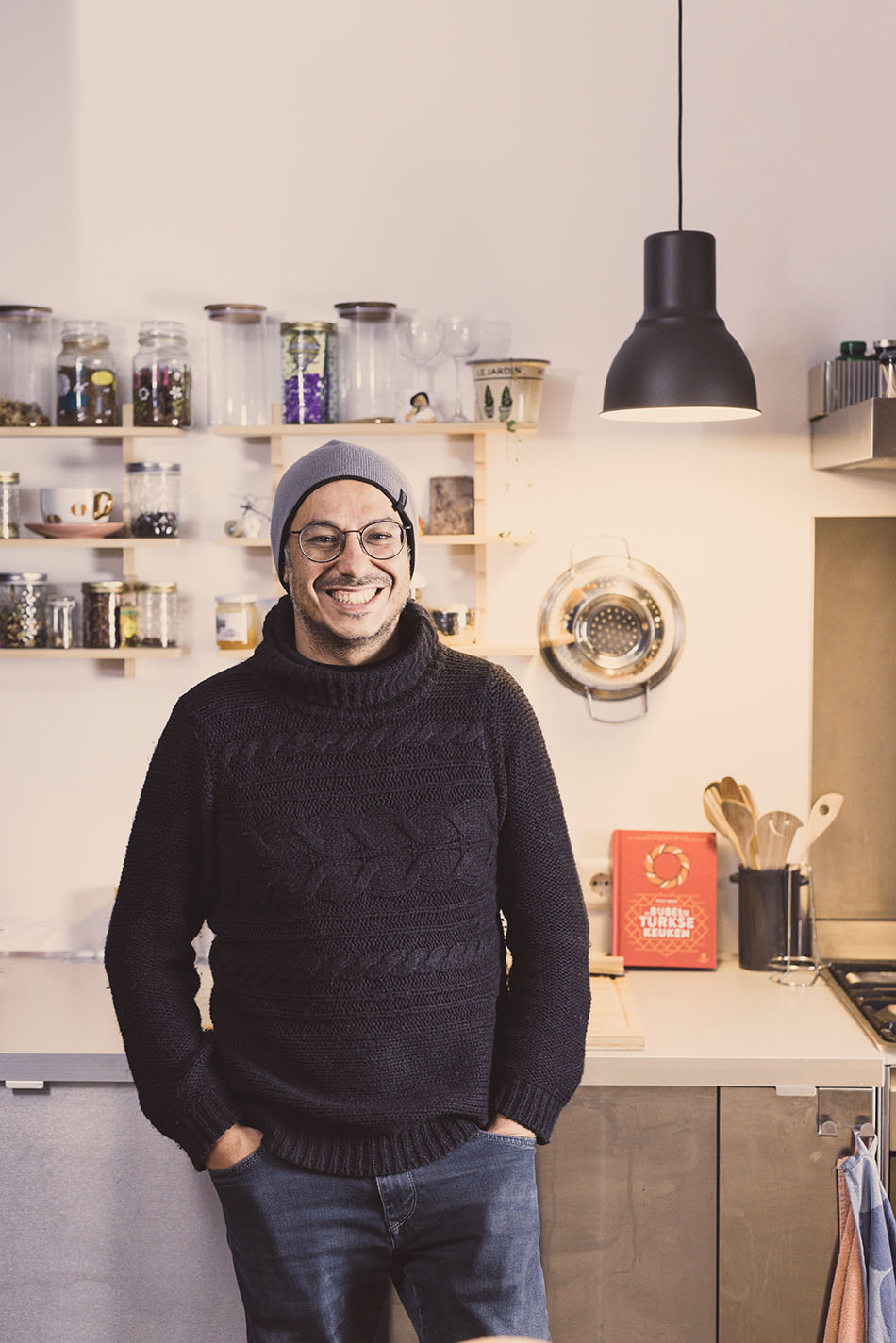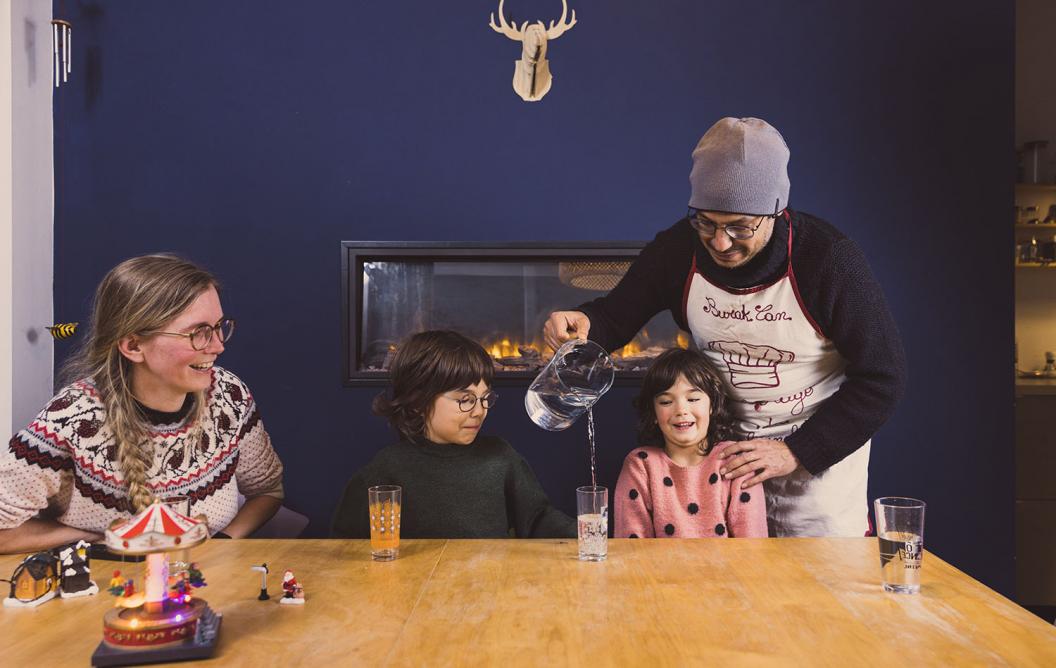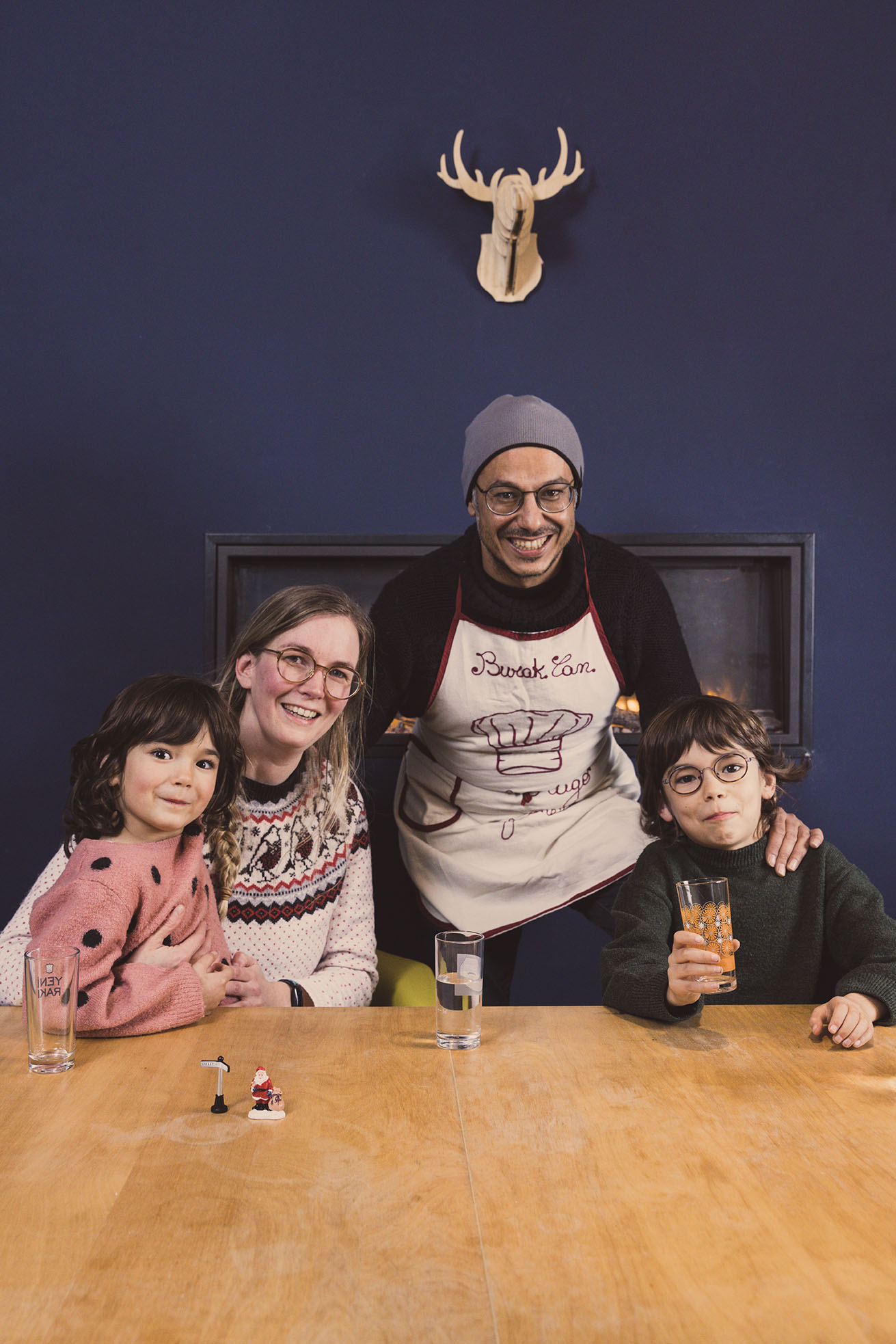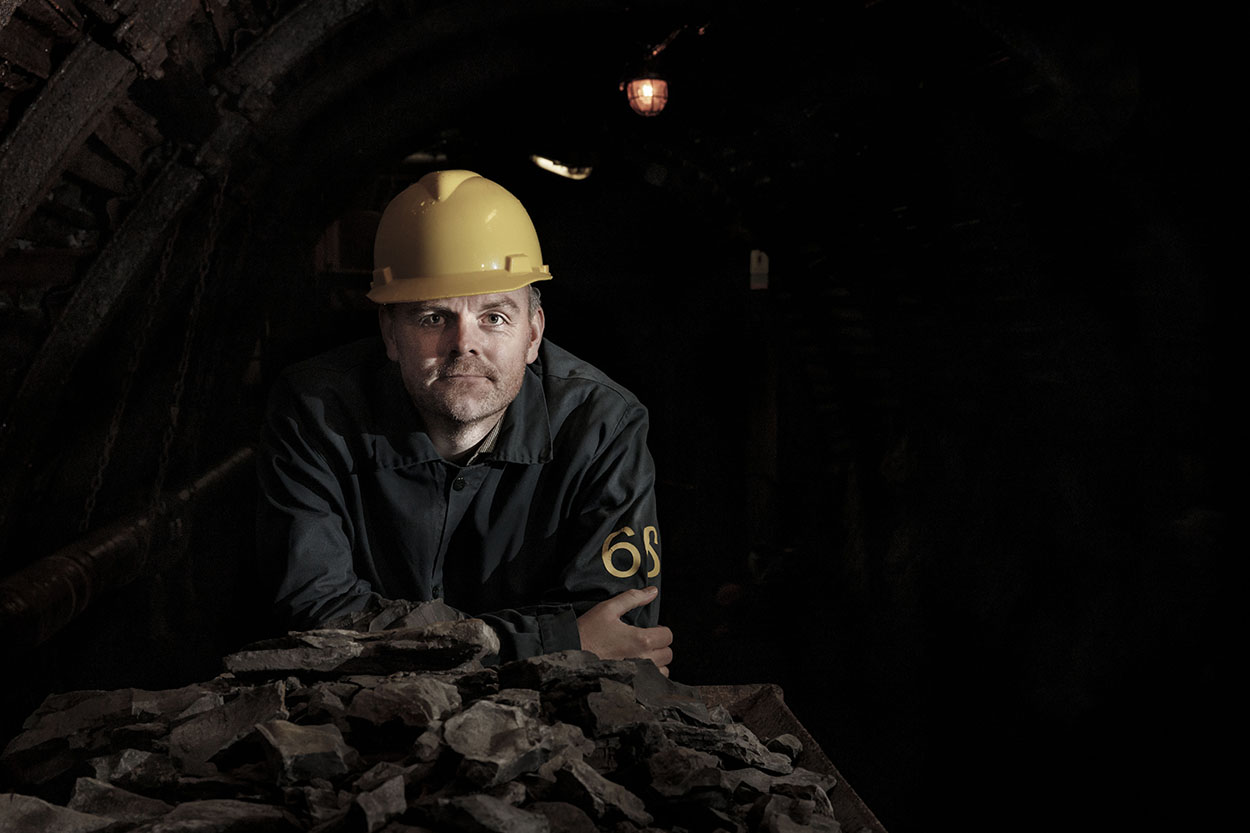“I enjoy feeding people”
Things are bustling around the kitchen table of Burak Can, associate professor of Data Analytics and Digitalisation. A mix of Turkish, English and Dutch can be heard. “I speak Turkish with my children, my wife Ingrid speaks Dutch with them, and we speak English with each other.” On the menu is one of the children’s favourite dishes: a Turkish lentil stew. At least, that’s what they think.
It was a busy day, so he’s had no time to prepare. During the conversation he dices the carrots and onions and smothers them with spices and paprika paste. Can most enjoys cooking for his children; they’re always excited about what he’s making. “Noah, the eldest, likes lots of herbs and spices, Ayla is a real carnivore, just like me. I was born and raised in Adana, where people eat a lot of meat. The Adana kebab is famous. Minced lamb, seasoned and grilled on a skewer, served with just a grilled bell pepper, green chilli and lettuce, tomato and cucumber. No sauce, no fuss. My recipe for Adana kebab was included in the ‘Turkse kookbijbel’ (Turkish Food Bible), a cookbook that was recently published,” he says proudly. “It was written by a friend of mine from Turkey. It focuses on simple, everyday recipes, categorised by region. In Turkey people eat out much more often, alone or with friends, in restaurants that serve home-style cooking. I miss that in the Netherlands. It’s either fine dining or McDonald’s here.”
Long hot summers
Adana is on the southern coast of Turkey, a large city of one and a half million people. “The summers are hot and the winters mild. As a child I had three months of summer break, which we spent in our holiday cottage by the sea. My mother always did the cooking. And she’s a good cook, so when I went to study in Istanbul at 18, I couldn’t cook at all. But I discovered that, like her, I enjoy cooking for others. She cooks with love, that’s what it’s all about.”

Burak Can is associate professor of Data Analytics and Digitalisation at the Maastricht University School of Business and Economics. He studied economics at Boğaziçi University in Istanbul and obtained his PhD at UM in 2012.

Ingrid, Noah, Ayla and Burak
One Adana specialty is sheep intestine filled with rice, minced meat and spices. “So good. Sheep intestines from all over Turkey are sent to Adana to be used in this recipe. They also use the fat from the sheep’s tail. It’s not healthy, but delicious. My favourite dish, içli köfte—couscous balls filled with minced meat, walnuts and herbs—takes days to prepare. They’re a kind of bitterbal, but boiled instead of fried.” Ingrid adds, smiling: “When I went to meet his parents, I ate so many that I can’t stomach them anymore.” To his dismay, Can too will have to avoid them for a while: he gave up bread and pasta a month ago due to high cholesterol, liver and blood-sugar levels. “Genetic, I’m afraid. That’s why I bought an air fryer for my parents—less fat, and tastier. I put almost everything in the air fryer. Grilled bell peppers taste so much better, in that way they dry out a bit too. I rarely use the oven anymore.”
Love of his life
Can was keen to pursue his PhD abroad mainly because doing so is well-regarded in Turkey. “I was a happy bachelor in Istanbul and didn’t particularly want to leave. I chose Maastricht for its expertise in game theory, and I could do my PhD here in three years and then go straight back. I was due to start in September 2007, so in April I went to the site to see who else would be doing a PhD here. I saw this blonde girl and said to a friend: ‘I’m gonna get this one.’ It was just a joke! Then I bumped into her on my first day; she was looking for test subjects for her experimental behavioural research. Of course I participated. We had our first date on 4 November, and she moved in with me in December. In the very first week I wrote to my supervisor in Istanbul that I’d found the love of my life. He laughed so hard, because he knew my past relationships had never lasted more than six months. We’ve been together for 15 years now.”
"My mother always did the cooking. And she’s a good cook, so when I went to study in Istanbul at 18, I couldn’t cook at all. But I discovered that, like her, I enjoy cooking for others. She cooks with love, that’s what it’s all about."

What’s their secret? “Certainly not her cooking style,” he laughs as he walks to the stove. “On our first date, I asked her if she could cook. ‘Sure,’ she said, full of confidence. Turns out she was bluffing. She was still living with her parents and her mother cooked for her. In our first year together she tried to cook more often, but I’d be standing there impatiently and didn’t really give her the space to try things out on her own. When she got the hang of it she was off like a train. Now she cooks really well, but she prefers not to have me around. She follows recipes, whereas I cook by intuition. Maybe that’s also a typically Dutch thing.”
As a surprise, the box of Turkish delight from Turkey, intended for Christmas, is opened after dinner to loud cheers from the children. And amid all the bustle, nobody noticed that Can had accidentally used buckwheat instead of lentils.
Post scriptum
Our conversation took place before the earthquake. Asked how his loved ones are doing now, Can replied: “My parents live in Istanbul nowadays so they are safe, but luckily my family members in Adana are also ok. Some of them are now at temporary accommodations but what matters most is that they are safe. I have experienced as a teenager a big earthquake in late 90s in Adana and we had to sleep outside in cars for a week. I remember having nightmares as a young man during those times. I have not lost any loved one but it haunted me for a long time. However what happened now is nothing comparable to anything I have seen or heard of. The trauma of surviving such a tragedy on such a massive scale is very difficult to cope with. It is not an easy thing for any community to lose everything; your family, your friends, your school, your livelihood, your whole life within minutes. And now there are thousands of communities, and dozens of cities which has to endure this en masse. In addition these earthquakes has also revealed to the whole world how corruption combined with neglecting meritocracy in crisis management can lead to massacre of possibly hundreds of thousands of lives. And this is the part that makes me frustrated, and should make everyone frustrated. So we can all learn a lesson out of this.”
Annelotte Huiskes (text), Philip Driessen (photography)
Also read
-
Why do humans act the way they do? To answer this complex question, Hannes Rusch has to be a bit of everything: economist, biologist, philosopher, mathematician. He recently received a €1.5 million ERC Starting Grant to develop and empirically validate an interdisciplinary theoretical framework for...
- in Corporate
- in Featured
- in Human interest
- in Researchers
